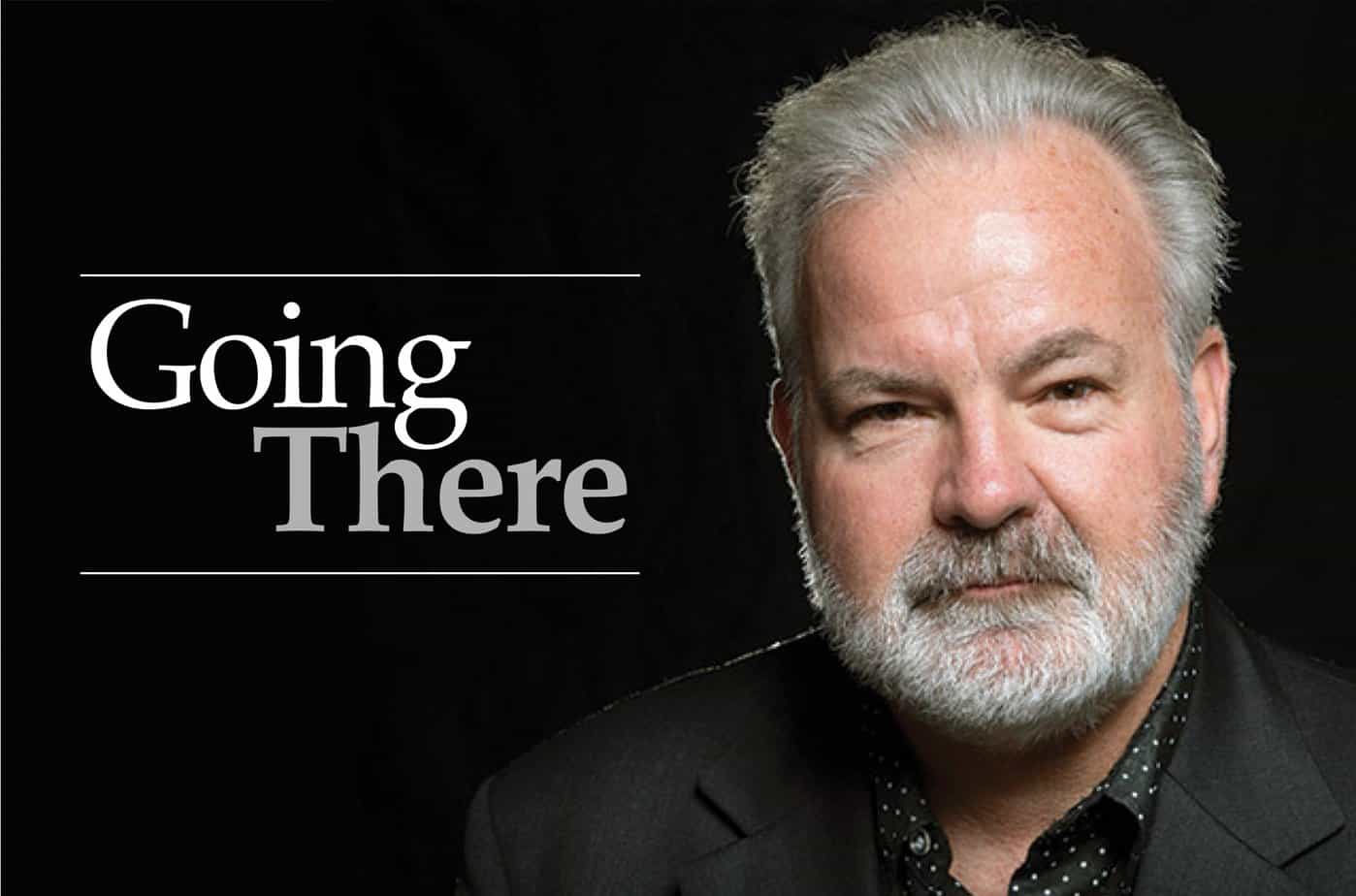A mother’s wisdom reveals itself over time

by Mick Rhodes | editor@claremont-courier.com
When I was 15, I landed a summer job with a friend’s dad who owned a small masonry business. The only non-family member on the crew of four, my job was to dig trenches for foundations, mix concrete, and move bricks and blocks into position as to minimize the exertion of the talent, the masons.
It was hard work out in the sun with squat, gruff, not funny men who didn’t seem to enjoy their jobs, or much of anything really. They tolerated me for the few weeks I was there out of pity because I was a friend of the family, but it became clear within days — hours really — that my temperament wasn’t right for the work. These guys were hard, their fingers gnarled, and faces lined and tanned from years of working in the sun.
I was 15 and in love with music, comedy, and girls, dreaming of a life in rock ‘n’ roll, or, if that didn’t pan out, journalism. I was essentially an alien creature to my new employers.
One day as we were sitting in the dirt eating our bagged lunches (like animals, I thought, even then) the old man who ran the show began one of his regular informal employment reviews. This had become a thing over the past few weeks, him scowling at me and muttering about how I wasn’t cut out for hard work, didn’t dig my ditches to his specifications, or fast enough, etc. He wasn’t wrong. I was a skinny kid with a questionable work ethic, and truth be told, had no interest in a life of blocks, bricks, and ditches. This time though, his critique included an extra dose of nasty old man, concluding with, and I quote: “I guess it’s because you didn’t grow up with a dad around.”
Though I instantly despised the guy for being so cruel, he did have one thing right: dad wasn’t around. But mom sure was.
She raised me on her own, her only child. Other women, my grandmother, aunts, and friends, chipped in too. Though I didn’t give it much thought at the time — it was just how it was — it turns out having so many women as my early role models shaped my adult life in ways that continue to reveal themselves to this day. And I’ll be 60 soon.
Growing up, the masculine ideal was clear: men went to work, drank (even on the job), smoked, had affairs with their secretaries, and were generally brooding tough guys incapable of expressing their emotions other than with physical violence.
Women stayed home and took care of the emotional and physical heavy lifting of parenthood, as well as the housework, meal planning, shopping, cooking, laundry, diapers, school drop-offs and pickups, and homework. Then they greeted their returning husbands with a cocktail and no hard questions.
These are of course stereotypes of the time, but I was around enough of my friends’ families to know that some of them were true.
My mom never had the luxury to think about these things. She worked her butt off, and had no time for brooding, bitterness, or drinks on her lunch hour.
By all accounts, my grandfather — the lone father figure in my early life — was a man’s man; he fought in World War II, worked the same job for 50 years, and built the family home with his own hands. Three of them in fact! (Houses, not hands.) Born in 1914 and abandoned by his own mother, he’d seen the worst of the 20th century by the time I came along in 1963. In spite of all this, he was an anomaly, a gentle man from whom I never heard an unkind word about anyone.
With this as my template, you can see why the prevailing brand of machismo — which was everywhere when I was coming of age in the 1970s — frightened me. I just didn’t have a frame of reference to understand it. I avoided fistfights, and the few I couldn’t talk my way out of left me anxiety ridden for days. I played sports, but lacked what coaches called “killer instinct.”
I played it off like I was tough and cool, but inside I was conflicted and fearful
As I grew into an adult I would from time to time try on that battle gear of American male macho bluster, but it was always false, and I’d come away feeling like a fraud.
It took me some time to realize it was okay to feel this way.
After that dam broke, I began to grasp that maybe rather than a defect, my lack of machismo might actually be a virtue. Maybe living like my mother did — loving unconditionally, to a fault even, and believing people are inherently good — actually showed more strength and toughness than the flipside approach of strike first and win at all costs.
The more I thought on it, the more that macho bluster battle gear felt like a mask rather than a weapon. And the older I got, the more insight I gained into how childhood trauma can resurface later as anger and violence.
Suddenly all those tough, hyper-masculine dudes looked like wounded children, lashing out because they were hurt, doomed to a life of spreading their subconscious misery.
It was a watershed.
Mom taught me the value of vulnerability, which freed me from the burden of macho posturing and guided me toward a creative life. I thought I had been hamstrung by my softness, but though it took decades for it to sink in, she was showing me a better way to be strong.
This column was inspired by an invitation from the Woman’s Club of Claremont to speak at its recent lunch meeting.







0 Comments